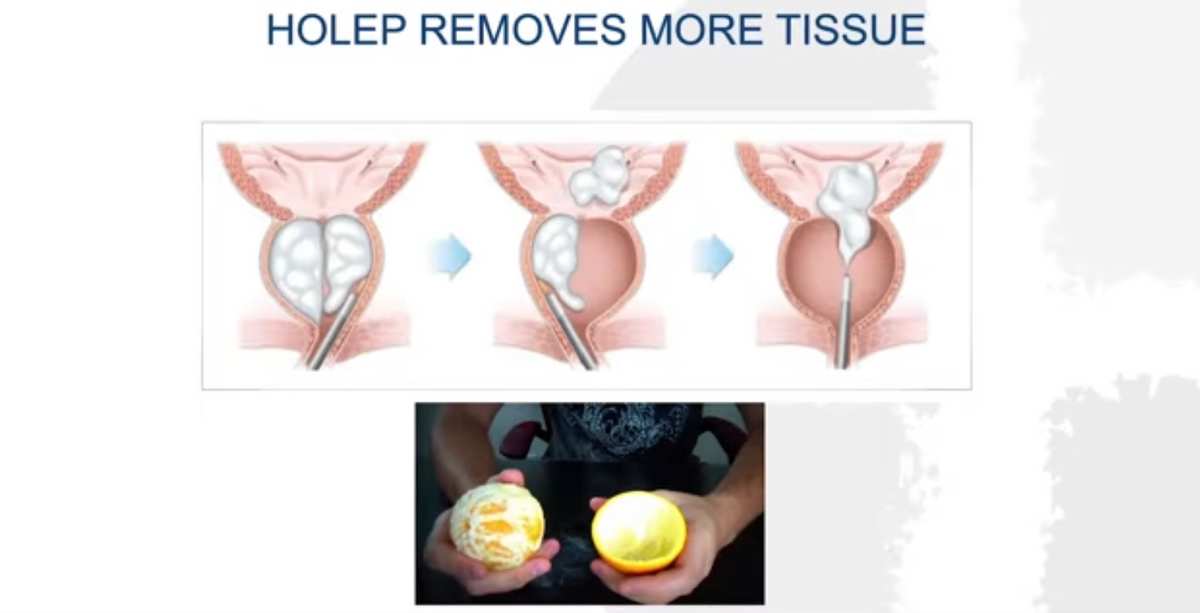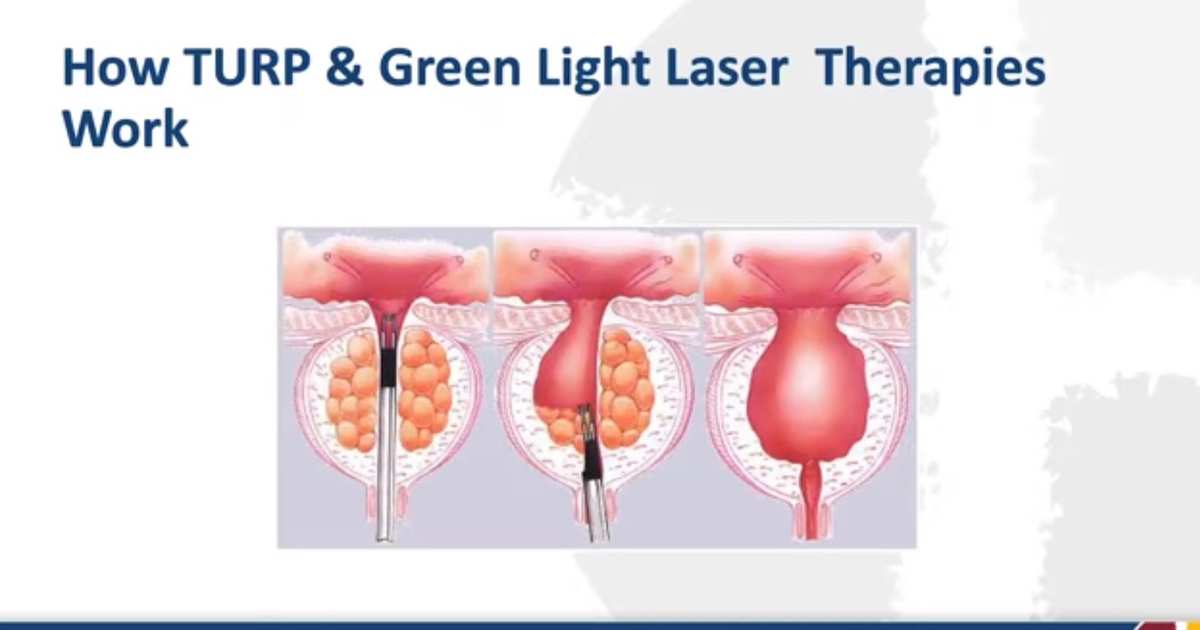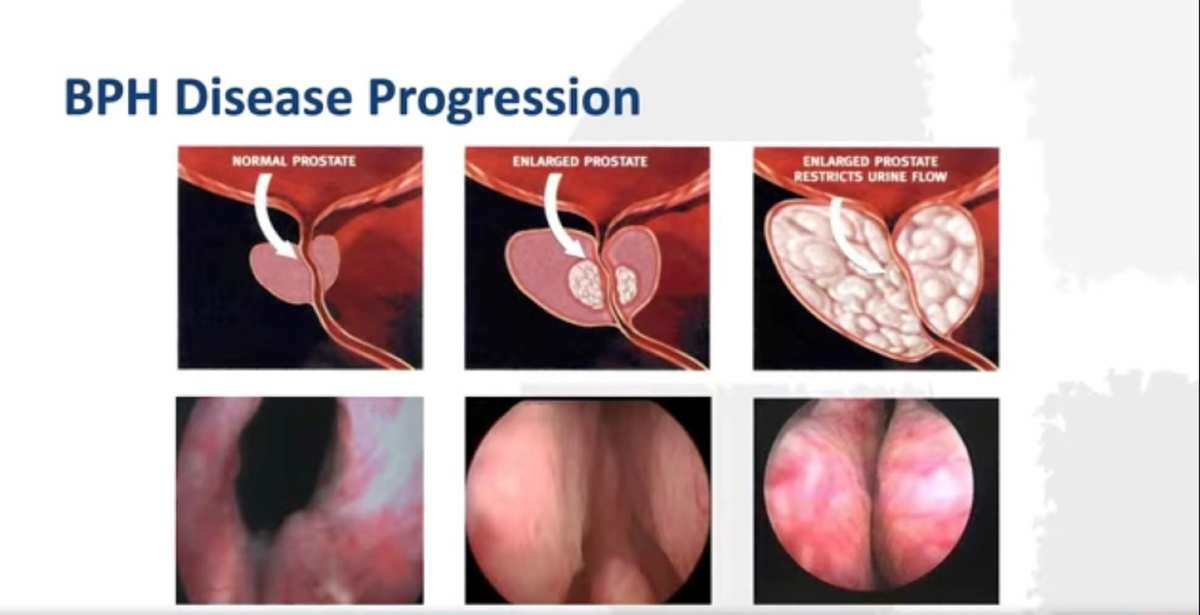Benign Prostatic Hyperplasia Treatment(ENLARGED PROSTATE)
Enlarged prostate also known as Benign Prostate Hyperplasia (BPH) is one of the most common urological disorder affecting men. It affects mostly older males after 60 years. Prostate gland is a part of urinary tract located below bladder. As the prostate gland increases in volume, it compresses upon urethra—the canal responsible for the transportation of urine, leading to urinary complications. Long term obstruction can worsen the kidney and bladder function.
At Ananta Urology and Robotics Clinic, our team of Urologist led by Dr. Rohan Patel, are committed to providing state-of-the-art treatment for Enlarged Prostate or BPH to ensure your well-being.
Holep

Bipolar TURP

SYMPTOMS OF BPH
Symptoms of Benign Prostatic Hyperplasia (BPH), or an Enlarged Prostate, tend to manifest differently in different patients. These signs, however, tend to get aggravated slowly, and thus the effect is compounded with time. Recognizable symptoms encompass:
● Weak urine stream(poor flow)
● Difficulty initiating urination (hesitancy)
● Intermittent urine flow (intermittency)
● Nocturia (increased nighttime urination)
● Frequent and urgent urination during the day
● Sensation of incomplete bladder emptying
● Post-urination dribbling
● Urinary tract infections
● Blood in urine
● Urinary retention (inability to urinate entirely)
These symptoms can overlap other conditions of prostate like prostatitis or prostate cancer. Hence if any of these symptoms persists, one should take an opinion of a Urologist to determine the Best Treatment.

Risk Factors
The prostate gland is a small organ situated in pelvis and functions as part of both urinary and reproductive tract. After the age of 50 years, it slowly starts to increase in size. For some people, this growth can increase beyond normal limits, leading to an enlarged prostate, which is characteristic of the ageing process. Although certain age-associated hormonal disturbances may be considered part of the causality, the exact etiological factors continue to escape.
● The prevalence of BPH is mainly affected by age as the condition affects mainly men in their fifties and above.
● A family history of BPH, mainly seen in fathers, makes the predisposition.
● BPH is also prevalent among some men suffering from ED.
● Being overweight and obese increases the chance of BPH development.
Diagnosis
If you are suffering from any of the above symptoms, your family physician may recommend you to visit a urologist. On your first visit, he/she may conduct various tests to reach a diagnosis of an enlarged prostate
Medical History and Physical Exam - A healthcare provider will ask about your symptoms and perform a physical exam with Rectal Examination(DRE) to help evaluate prostate size.
Urine and Blood Tests - Other diseases are ruled out with the help of urine and blood samples; the stage of functioning of the kidneys is also determined with the help of such samples.
Prostate-specific antigen (PSA) blood test - It measures the levels of PSA which is related to the size of the Prostate and other related conditions like prostate cancer.
Urinary flow test - It measures urine stream strength and volume and thus allows for determining the degree of obstruction caused by prostate and monitoring changes in the long run.
Postvoid residual volume test monitors bladder emptying capacity, working with ultrasound or a catheter.
For complex cases, further tests may be recommended by your specialist:
Transrectal ultrasound - Detects prostate size and architecture.
Prostate biopsy - In case of suspicion of cancer, a prostate biopsy will be done.
Urodynamic Test - It is a pressure flow study of bladder to determine bladder changes or damage caused by obstruction due to prostate enlargement.
BPH Treatment
At our urology practice, we prioritize patient comfort and safety. Our dedicated prostate specialist Dr Rohan Patel, understands the nuances of urological conditions, including enlarged prostate, and work diligently to tailor treatment plans to your unique needs. We believe in a holistic approach to healthcare, emphasizing open communication and patient education throughout your journey.
Treatment of enlarged prostate or BPH depends on various factors like size of the prostate, patient general condition and comorbidities, and effect of prostate on urinary tract. It generally consists of medical or surgical treatment.
Medical Treatment
Medical therapy for prostate is generally recommended in cases of mildly enlarged prostate, and in patients having low symptom score. It is usually prescribed for 1-2 years. Medications for an enlarged prostate include:
Alpha blockers - Relaxes the muscles found in the prostate to facilitate easy urination. Some of the side effects are dizziness and retrograde ejaculation.
5-alpha reductase inhibitors - Shrink the prostate size. They might take long to act and have side effects affecting sexual function.
Combination therapy - A combination of alpha blockers and 5-alpha reductase inhibitors is usually recommended for superior efficacy.
PDE5 Inhibitors - PDE5 inhibitors are also recommended in cases of an enlarged prostate.
Surgical Treatment
Possible option for enlarged prostate treatment when medication does not work or if preferred by the individual is surgical.
Absolute Indications for Surgery in BPH include:
● Recurrent UTIs
● Recurrent hematuria
● Acute Urinary Retention
● Failed medical therapy or patient preference
● Worsening of Kidney Function
A diverse array of surgical procedures are available for BPH and each has corresponding pros and cons. One should consult with a Urologist in detail about each of these procedures to determine what is the Best option for them.
TURP (Transurethral resection of the prostate) - Traditional and the most commonly used technique for BPH treatment is TURP. In it, an endoscope is introduced via urethra to remove obstructing adenomatous parts of the prostate using either monopolar cut technique.
Bipolar TURP - Bipolar TURP is an advanced form of TURP in which specialised Bipolar Cautery is used to resect tissues. This Bipolar technology causes less bleeding, and less absorption of fluid compared with conventional monopolar TURP, thereby decreasing overall complication rates.
Holep(HoLEP) - HoLEP is a minimally invasive surgical technique that uses a laser to enucleate obstructive prostate tissue, leading to effective and successful treatment of urinary symptoms associated with Benign Prostatic Hyperplasia.
Advantages of HoLEP (laser Surgery for Prostate):
● reduced incidence of bleeding
● complete removal of prostate
● Decreased chance of reoperation
● shorter hospital length of stay
At our centre, we provide the most advanced and the Best Treatment For Enlarged Prostate In Ahmedabad. Dr. Rohan Patel is recognized as one of the Best Robotic Surgeon, and is credited with treating thousands of prostate patients all over from Gujarat, Rajasthan, Madhya Pradesh and India.
For cases where minimally invasive techniques prove ineffective, more extensive options include:
Robotic or Open Surgery - These techniques are restricted to very large prostates (>100 grams) or when some other treatment modalities are not practicable owing to specific grounds, such as the presence of a bladder stone or diverticulum.
Robotic Simple Prostatectomy - Robotic simple prostatectomy is a minimally invasive Robotic-assisted surgical intervention that removes enlarged portions of the prostate gland obstructing urine flow, thereby providing accurate tissue removal and less recovery time compared to open surgery.
At our clinic, we are committed to providing the Best prostate Treatment in Ahmedabad to patients suffering from Prostate disorders.
Choosing our services means entrusting your care to a team dedicated to excellence, backed by the latest advancements in urological technology. Experience the difference of personalized, patient-centred care with our urology practice at the Best Hospital for Laser Prostate Treatment in Ahmedabad, India.
CONTACT US today to schedule a consultation with the expert for Benign Prostatic Hyperplasia Treatment in Ahmedabad and take the first step toward reclaiming your quality of life. Your well-being is our priority, and we are here to guide you through every step of your journey to optimal urological health.


